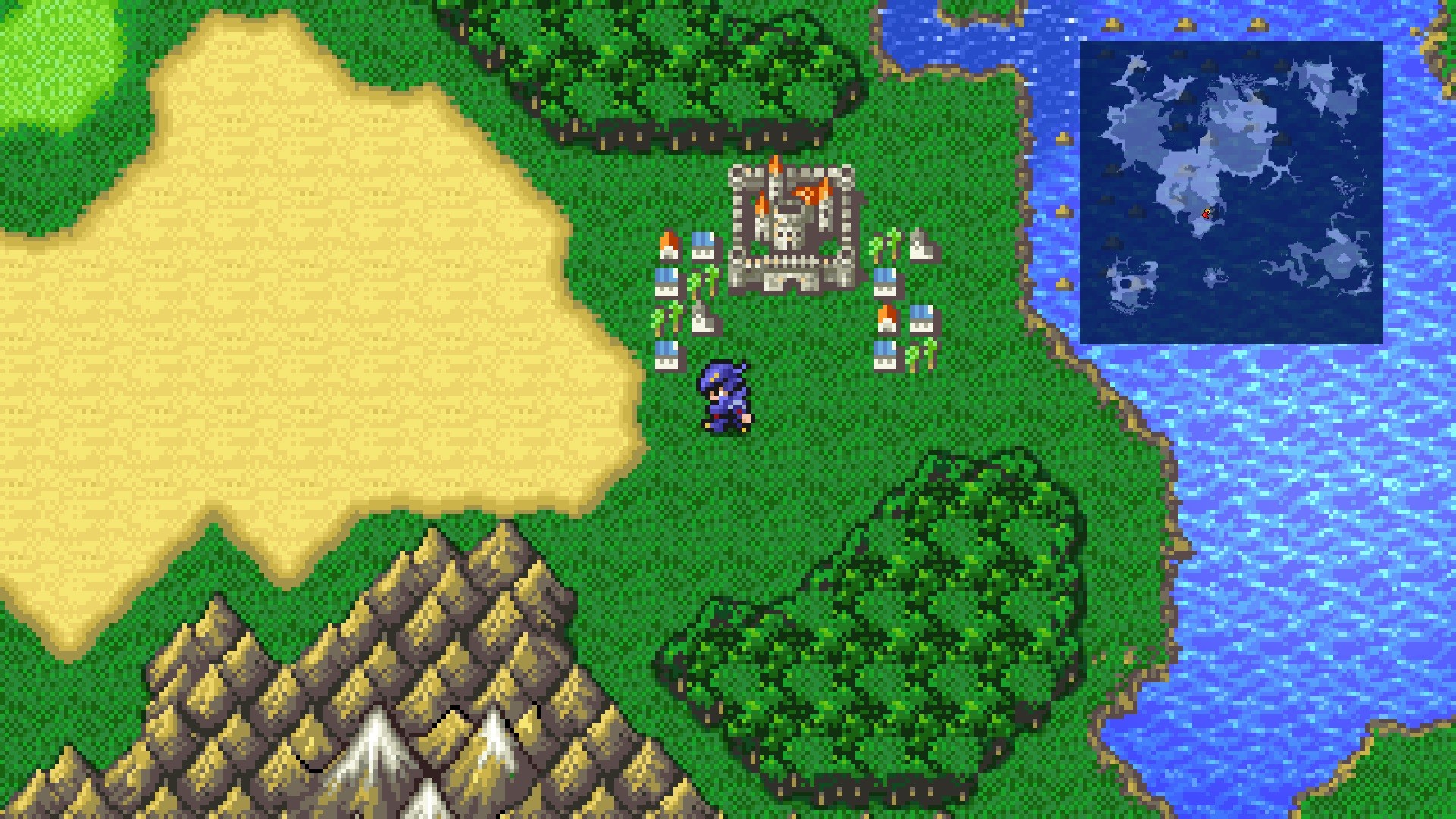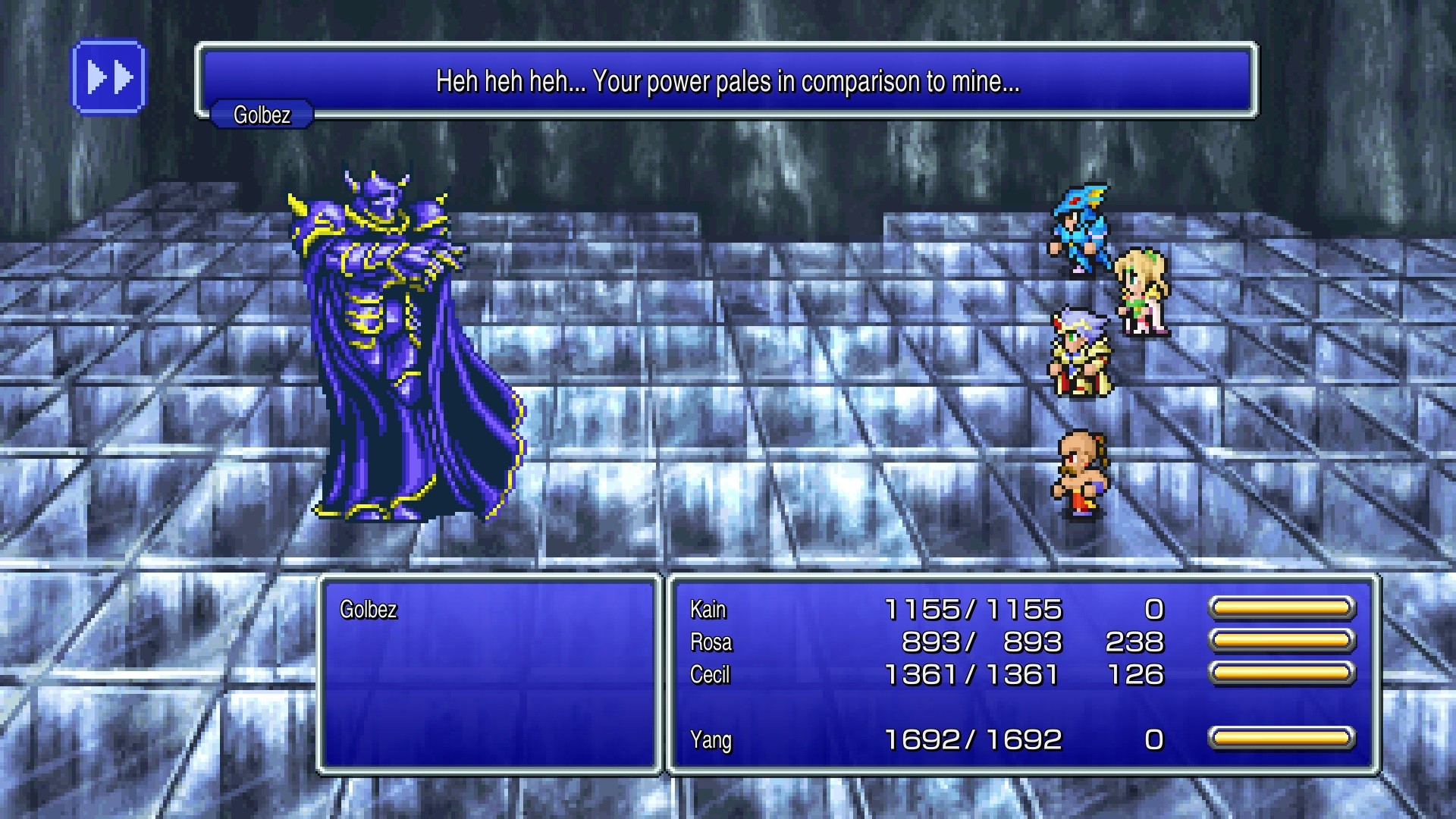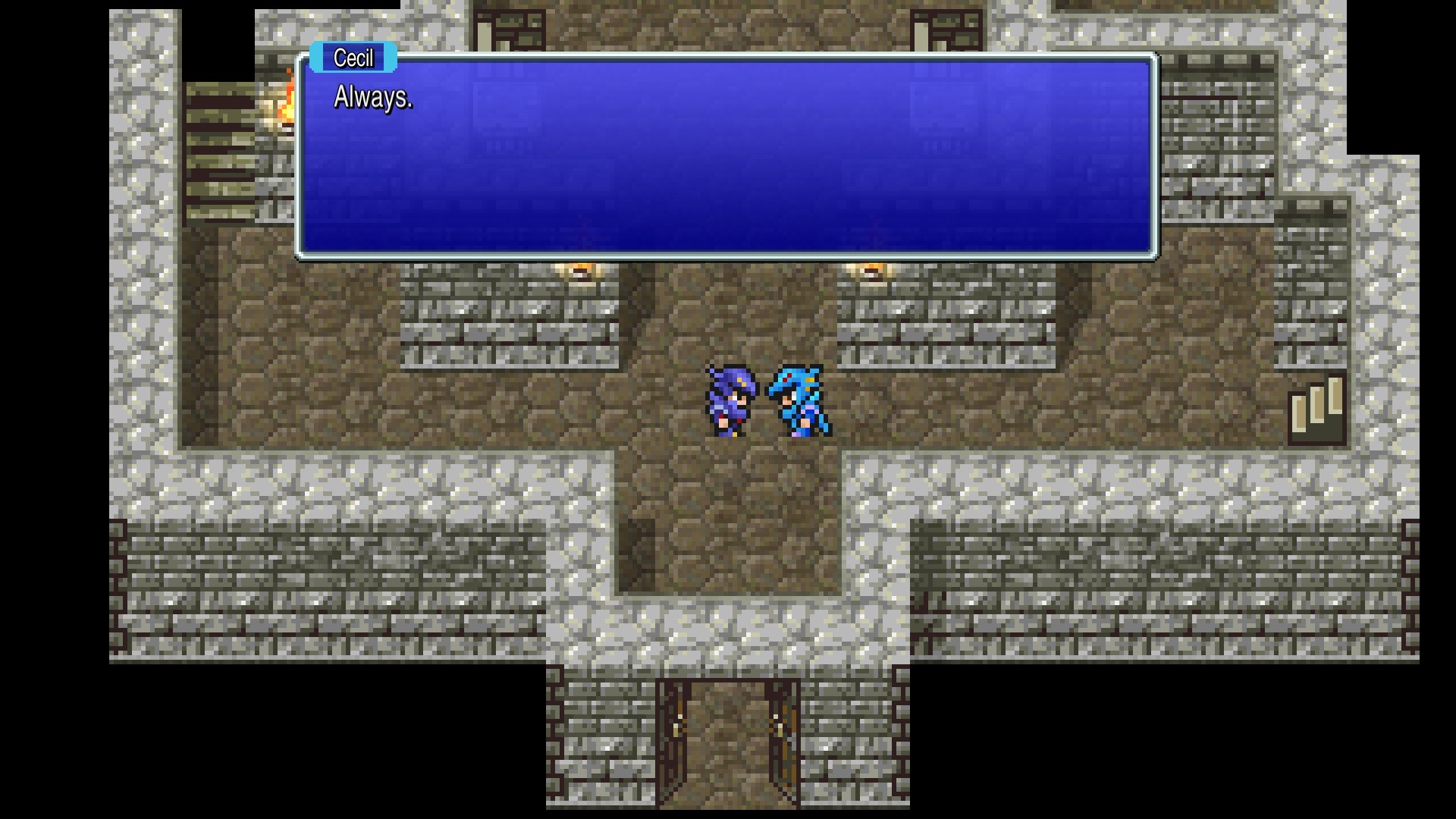Final Fantasy IV shows how tedious modern JRPGs have become
Final Fantasy IV is still one of the best games in the series, three decades later

Here at Tom’s Guide our expert editors are committed to bringing you the best news, reviews and guides to help you stay informed and ahead of the curve!
You are now subscribed
Your newsletter sign-up was successful
Want to add more newsletters?

Daily (Mon-Sun)
Tom's Guide Daily
Sign up to get the latest updates on all of your favorite content! From cutting-edge tech news and the hottest streaming buzz to unbeatable deals on the best products and in-depth reviews, we’ve got you covered.

Weekly on Thursday
Tom's AI Guide
Be AI savvy with your weekly newsletter summing up all the biggest AI news you need to know. Plus, analysis from our AI editor and tips on how to use the latest AI tools!

Weekly on Friday
Tom's iGuide
Unlock the vast world of Apple news straight to your inbox. With coverage on everything from exciting product launches to essential software updates, this is your go-to source for the latest updates on all the best Apple content.

Weekly on Monday
Tom's Streaming Guide
Our weekly newsletter is expertly crafted to immerse you in the world of streaming. Stay updated on the latest releases and our top recommendations across your favorite streaming platforms.
Join the club
Get full access to premium articles, exclusive features and a growing list of member rewards.
Welcome! This column is part of a regular series in which we share what members of the Tom's Guide staff are playing and enjoying right now, with an eye towards helping you find great games that you may have missed. Be sure to check out our previous entry, where we talk about Halo Infinite.
If you’ve played Final Fantasy IV, you don’t need me to tell you that it’s one of the all-time classic Japanese role-playing games (JRPGs). With its deep combat system, memorable cast of characters, heartfelt story and charming graphics, it essentially pioneered the formula that most JRPGs still follow today. But after recently replaying the game, what struck me most about FF4 was that it took me 21 hours to beat, side quests and all.
Modern fans have gotten used to the idea that JRPGs are huge, grandiose, bloated productions that can consume 100 hours of your life, or more. FF4 stands as a stark reminder that this doesn’t have to be the case. During my 21 hours with FF4, the game never dragged or overstayed its welcome, and left me feeling satisfied rather than exhausted. I started to wonder: Are modern JRPGs really better than their ‘90s brethren — or just longer?
Revisiting the classics

If you've never played FF4, it has an extremely straightforward pitch: You play as Cecil, a dark knight in the kingdom of Baron. He defies a horrific order from his king, and sets off on an adventure to pursue the magical crystals that protect the land. Along the way, he teams up with a delightful cast of characters, from the brooding dragoon Kain, to the eager summoner Rydia, to the cantankerous sage Tellah.
The gameplay should also seem familiar to anyone who's played a Final Fantasy game in the past 30 years or so. You recruit a party of up to five characters, then fight hundreds of random battles to level up their attributes and abilities. This is the game that pioneered FF's signature Active Time Battle mode, which requires players to think on their feet rather than simply wait politely for their next turn.
Final Fantasy on the NES is where the series was born, but FF4 is where it matured.
I first played FF4 when I was in high school, and even then, I was impressed by just how modern it felt. My first exposure to the series was the flashy, extravagant Final Fantasy VII, and I was worried that FF4, with its simpler gameplay and 2D graphics, would seem primitive by comparison. Instead, I found a demanding combat system, an involved narrative and some gorgeous sprites. Final Fantasy on the NES is where the series was born, but FF4 is where it matured.
A few weeks ago, I picked up Final Fantasy IV: The Complete Collection on the PlayStation Vita, and played about six hours in one sitting. Right from the start, I couldn't believe how quickly the game moved. I didn't have to sit through a 30-minute cutscene before I took control of Cecil and started fighting enemies. Kain and Rydia didn't have tedious, overlong introductions; they just joined the party and revealed more about their personalities as they went.
Keep it short

After six hours in a modern JRPG, such as Xenoblade Chronicles 3, you're lucky if the story has made its way past the initial mountain of expository dialogue. After six hours in FF4, I had recruited a party, lost said party, and recruited a whole new party to replace them. I had journeyed across half the world map, first on foot, and then by hovercraft. I had seen shocking story twists, full of redemption, betrayal and sacrifice. I had even faced off against a major villain.
Get instant access to breaking news, the hottest reviews, great deals and helpful tips.
The game's brisk pace continued all the way until the end, and yet it never felt rushed. The story earned its exciting climax; every character got a complete arc; each dungeon challenged my combat skills. There were three big world maps to explore; there were plenty of optional missions to undertake. FF4 is full of powerful equipment and hidden bosses, but you don't need a walkthrough to find them. The game doesn't have endless mounds of "content." Instead, it has a generous — but limited — number of worthwhile adventures.
When the credits rolled and I saved my completed game file, I saw that I'd amassed 21 hours of gameplay, having completed the main story and most of the optional quests. This playtime would be considered unbelievably stingy in a modern JRPG, but I didn't see how the game could have benefited from being longer. It accomplished everything it set out to do, in terms of both story and gameplay, and didn't consume months of my free time in the process.
Compare and contrast to some modern JRPGs. According to HowLongToBeat, Persona 5 takes between 98 and 113 hours; Tales of Arise takes between 41 and 56 hours; Yakuza: Like a Dragon takes between 45 and 67 hours; Xenoblade Chronicles 3 takes between 59 and 92 hours. It's worth asking how many of these hours are riveting story cutscenes and thoughtful gameplay challenges, and how many are just repetitive level-grinding or verbose exposition.
While some game companies love to boast about how many hundreds of hours their games last, I would argue that a game's length isn't all that important. We remember the impact a game makes, not how long it took us to beat. This is why, for example, The Witcher 2, with its 35-hour runtime, is probably just as good as The Witcher 3: Wild Hunt, which can last for 100 hours or more. The Witcher 3 has more stuff to do, but The Witcher 2 tells a much tighter story.
While there's no universal perfect length for a JRPG, FF4 is an excellent reminder that less can be more. Given the choice between 20 hours of good stuff and 100 hours of fluff, which would you rather have?
In other FF news, Final Fantasy XVI could get a new trailer in October.

Marshall Honorof was a senior editor for Tom's Guide, overseeing the site's coverage of gaming hardware and software. He comes from a science writing background, having studied paleomammalogy, biological anthropology, and the history of science and technology. After hours, you can find him practicing taekwondo or doing deep dives on classic sci-fi.
 Club Benefits
Club Benefits










